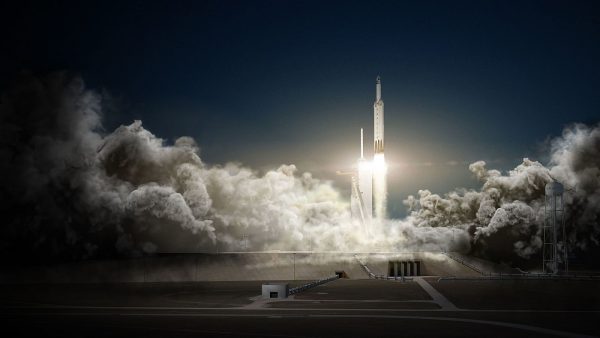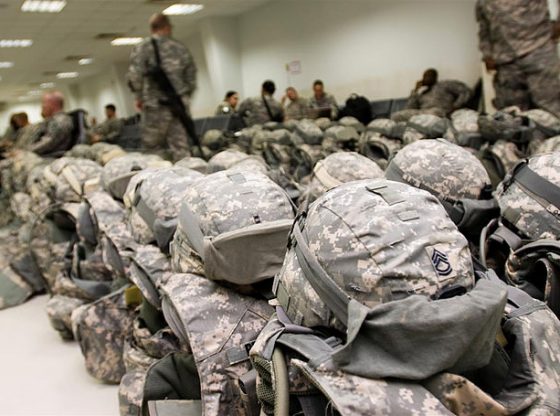Who ever heard of a Colonel commanding a starship? A proposed amendment to the House of Representatives’ version of the 2021 National Defense Authorization Act (NDAA) introduced by former Navy SEAL Rep. Dan Crenshaw would replace the current Air Force ranks structure in the new U.S. Space Force with naval ranks.
Supporters are still working to keep the amendment – appropriately nicknamed the “Starfleet Amendment” – in the NDAA. It will need to be supported by the Senate to become law.
Considering that the space domain is far more akin to the oceans, and spaceships, are, well – ships – naval ranks seem appropriate. Providing Space Force naval ranks would also help it establish its own unique identity, separate from its Air Force heritage.
Space Force is the 6th U.S. military branch, officially created in December 2019 by President Trump.
Before this amendment – and the ensuing debate – Space Force leaders had been considering using Air Force ranks with a slight change to call junior enlisted personnel “specialists” instead of “airmen.”
But now the debate about using Air Force or Naval ranks has shifted into high gear with op-eds and commentary on both sides. In Politico, Brent Ziarnick identifies several reasons why the naval rank proposal has merit.
He argues – as I noted above – that it is necessary to distinguish the Space Force from its Air Force parentage – akin to the Department of the Navy and the Marine Corps – both unique services with different ranks.
Ziarnick also argues that to fully succeed the new branch needs to be “maritime-inspired,” viewing space much like the high seas. Space Force’s “role should emulate the U.S. Navy role in assuring the maritime domain.”
He adds “the most important reason for the Space Force to use Navy rank is because Space Force officers must think like Navy officers if they are to succeed in the great power competition of the 21st century.”
Meanwhile, retired Air Force Lt. Col. Peter Garretson argues the opposite view in his own Politico op-ed, stating that all these reasons are likely to create resistance within the Department of the Air Force and maybe Space Force itself.
Almost all Space Force officers and personnel are currently from the Air Force. He also notes that in the Department of the Air Force:
…the overwhelming institutional push has been to limit the schism caused by the breakaway of the Space Force in order to enable in-department comradery and integration. To those who view the break-up as detrimental, a separate rank system is unwelcome because it accelerates a separate culture and doctrine – thus working against aerospace warfighter integration.
Both make valid arguments, but I tend to side with the idea that naval ranks are more appropriate for the domain and military thinking required long term, if not necessarily in the short term. Space Force is still mostly terrestrially based for now.
But having separate identity and ranks has never hurt the Marine Corps with the Navy – and today they are becoming even more integrated than ever in the new maritime warfare mission.
And then there is actor William Shatner’s view. As Captain of the USS Enterprise on Star Trek for over two decades, his opinion should count. In his own op-ed in the Military Times – he stated:
What the heck is wrong with you? I’m talking about the ranks of the Space Force. There was no Colonel Kirk; not even in the mirror universe (which is what 2020 feels like at times.) Do you know your entertainment space history?
Indeed, Captain, I cannot imagine a “Colonel Kirk” commanding the Enterprise – can you?
Advertisement
Help President Trump Stop Joe Biden [ACT NOW]
















I agree – Naval ranks should be used, after all the Space Force is in space. Duh!
I like the idea of Naval ranks, purely from an emotional point of view.
However, Seaman does not work in space. Let’s go with Specialist or something like that for the three lowest ranks (Specialist, Specialist Apprentice, and Specialist Recruit). Maybe just go with Apprentice and Recruit (drop the Specialist word) for the two lowest ranks.